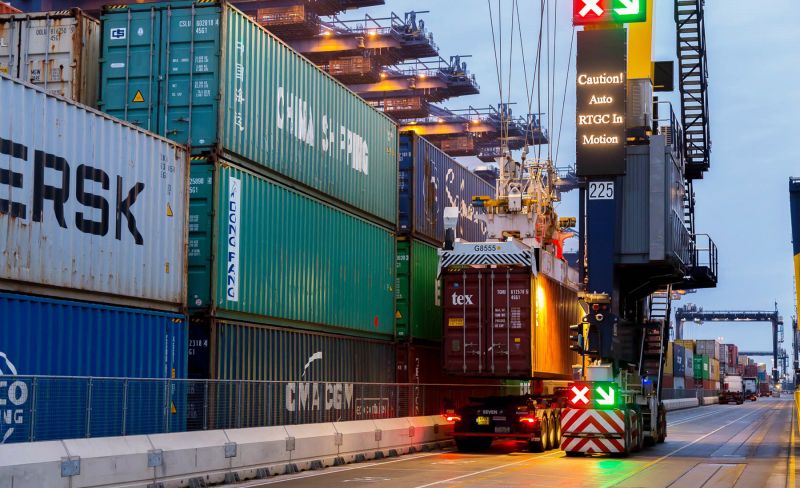Coinciding with COP26 in Glasgow, Hutchison Ports Port of Felixstowe has announced a major investment in new equipment to help decarbonise its operations. The UK's largest container port has placed orders for 48 battery-powered terminal tractors and 17 zero-emission Remote controlled Electric Rubber-Tyred Gantry cranes (ReARTGs).

The new two-wheel drive tractor units, to be supplied by Shanghai Zhenhua Heavy Industries Co Ltd (ZPMC), will be the first electric tractors at the UK's largest container port. ZPMC are working with their partner Shacman to develop the battery-powered tractor units.
The ReARTGs, which will be fitted with the latest semi-automation technology, will be supplied by Konecranes Finland.
Commenting on the investment, Chris Lewis, Chief Executive Officer at the Port of Felixstowe, said:
"This order represents the latest part of our plan to reduce the environmental impact of our operations. In total, replacing 48 diesel-powered tractor units and 17 conventional RTGs with new electrical equipment will save 6,662 tonnes of CO2 and 59.38 tonnes of NOx emissions every year.
"We have reduced our carbon footprint by 30% since 2015. That has been achieved through a range of measures including the first phase of our programme to phase out diesel-powered yard cranes. These latest acquisitions will help drive further substantial reductions in the future and help us to reach our target of a further 20% reduction over the next 5 years."
Clemence Cheng, Managing Director Hutchison Ports Europe and joint chair of Hutchison Ports Group Sustainability Committee, commented:
"Climate change is one of the greatest challenges of our time and Hutchison Ports is committed to playing its part by minimising the impact of port operations on the environment. Promoting a culture of technological innovation and adoption of alternative fuels is a key strand of our strategy. This investment takes us another step nearer to our goal."
To support use of the new equipment the port will be upgrading its High Voltage (HV) electrical power distribution network and installing new electrical infrastructure to support the ReARTGs and ten charging stations for the battery-powered terminal tractors.
The port is examining ways to build on the steps it has already taken to eventually reach net-zero. It is working with partners, including Ryse Hydrogen, to explore the use of hydrogen powered port equipment and with Cranfield University, Sizewell C and EDF, the Port of Felixstowe is involved in one of the projects selected to receive support from the Clean Maritime Demonstration Competition. The project involves a feasibility study into the potential for Freeport East, which includes the ports of Felixstowe and Harwich International, to become a net-zero port and a net-zero energy hub for third parties and the adjacent region.